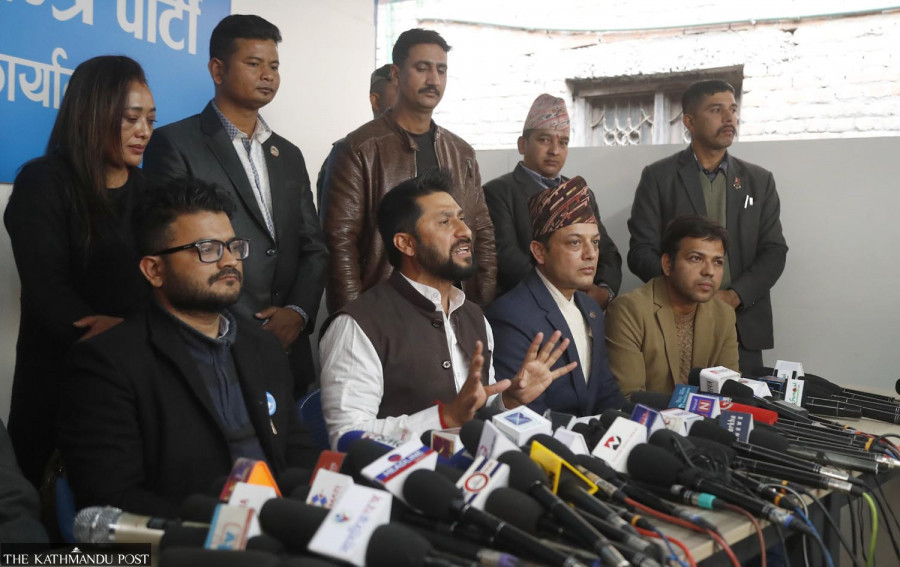Editorial
Shooting the messenger
Lamichhane must be well aware that Nepali mainstream media is considered among the freest.
The ability to conduct a civilised debate is vital for a democratic society. Unless we have the patience to hear what the other person has to say, we cannot understand them; and if we don’t, we make all kinds of wild assumptions about others. This in turn often manifests in acts of violence and bigotry. The way a disgruntled Rabi Lamichhane—ex-home minister, TV personality and political leader—randomly rattled off the names of prominent media houses and journalists at a press conference on Sunday, accusing them of hounding him unfairly, and threatened to blockade those who published any more news stories against him, precludes the possibility of such a civilised conversation.
As problematic as Lamichhane’s accusations was his coarse language: He called a fellow journalist a “joker”, and he compared the intellectual height of another commentator with the width of a politician’s underwear. Moreover, he showed absolutely no remorse for having placed himself in a high public office when he did not possess valid Nepali citizenship, but instead tried to justify his unlawful act by claiming that there were others who had multiple citizenship too.
Whatever the purpose of his tirade against the media, it is mighty dangerous for Nepali democracy. By dismissing all of Nepal’s prominent media houses as instruments of vested interests, he has tried to chip away at people’s trust in the mainstream media. But what will Nepali society be like if it delegates journalism to amateurs who are only after clicks and likes? Time-honoured traditions of journalism like fact-checking, vetting news sources, constant self-monitoring and oversight will be lost, and sensationalism will thrive in its place. In a country like Nepal that is undergoing rapid political and social transformation, that will be a recipe for disaster. If Lamichhane believed in his innocence, he should have waited for the due process of the law to play out. If he is clean, no one can stop him from contesting the elections again and returning to government. And this was precisely the argument many media outlets, including this one, were making. Yet, perhaps realising that he was on iffy legal ground, he seems determined to adapt the Trumpian path of smashing the existing structures so that he gets to make his own rules.
As a former member of the Nepali media fraternity himself, Lamichhane must be well aware that the Nepali mainstream media is considered among the freest and most vibrant in the region: In the 2022 Reporters Without Borders index of press freedom, Nepal ranked second in South Asia, and was miles ahead of India. For all the flaws in Nepal’s mainstream media, it is doing a great job of championing the truth. As of now, it is also arguably the best vehicle for the promotion of a civilised, nuanced debate. Lamichhane has done his country a disservice by trying to create doubt about the media. Press freedom in Nepal, though under threat, is not something that will easily crumble. In the past three decades, the Nepali media has gone through worse and not just survived, but even thrived in what was an extremely challenging ecosystem all around.




 13.12°C Kathmandu
13.12°C Kathmandu














